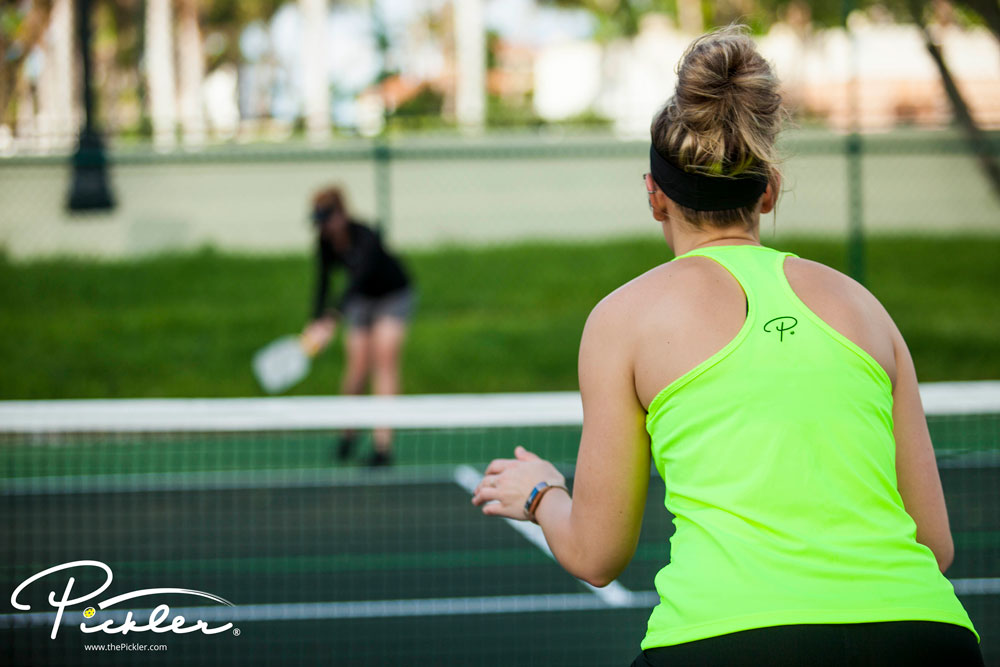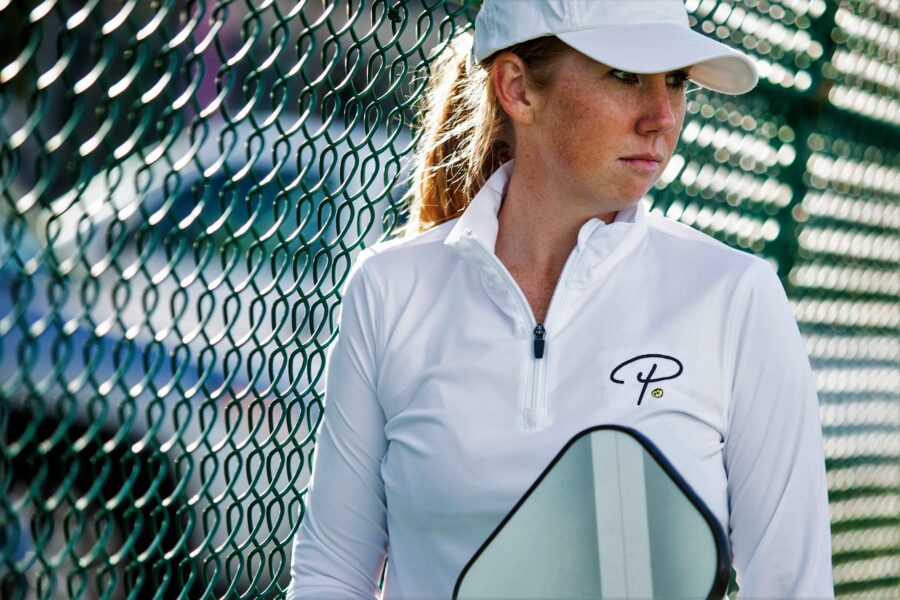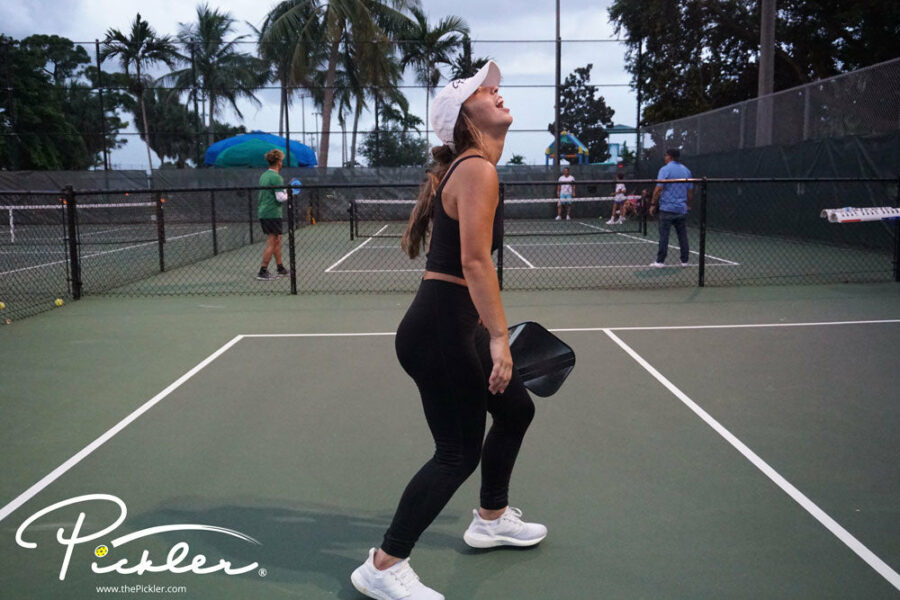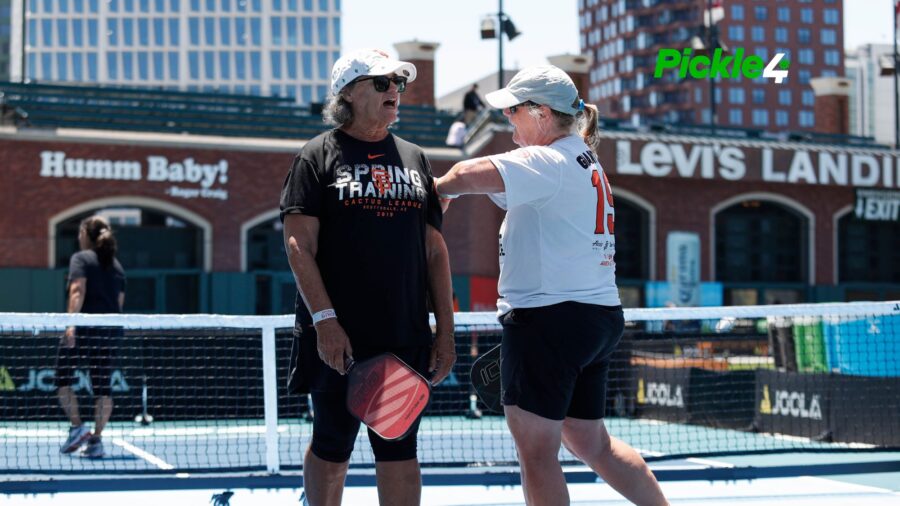There are a few ways to rate or rank your pickleball skills on the pickleball court, which include:
- Pickleball Ratings (this may also be referred to as your pickleball skill rating)
- Self-Ratings
- USA Pickleball Tournament Player Ratings
- Dynamic Universal Pickleball Ratings
- General Pickleball Skill Levels
- Beginner Pickleball Players
- Intermediate Pickleball Players
- Advanced Pickleball Players
- Pickleball Rankings
- World Pickleball Rankings
- Global Pickleball Rankings
- APP Rankings
- PPA Rankings
- USA Pickleball Rankings
In this blog, we will breakdown each of these pickleball ratings, skill levels, and rankings.
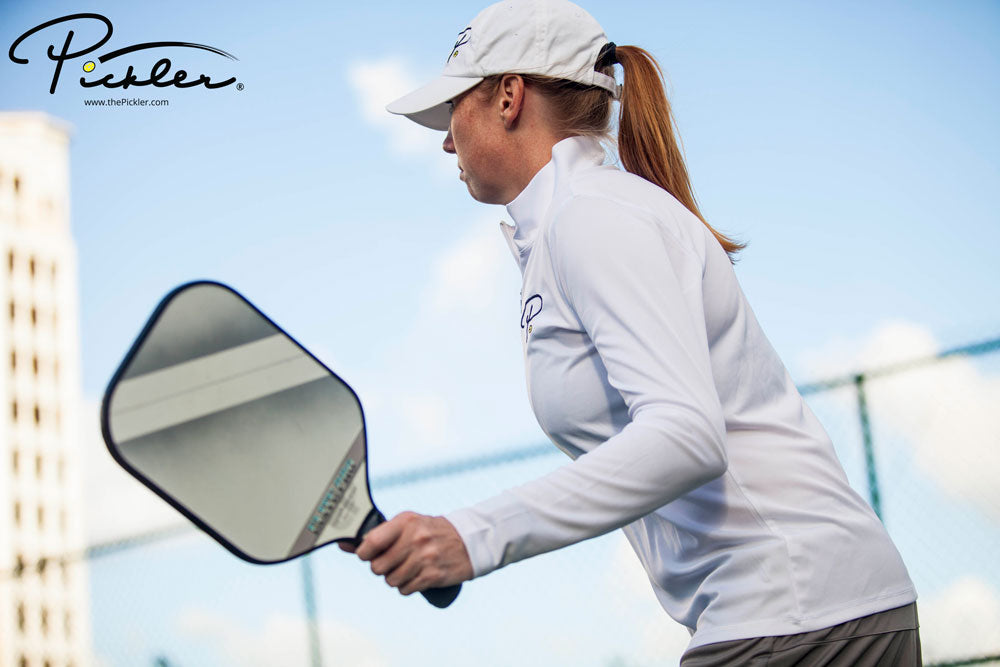
Pickleball Ratings
Pickleball players are rated based on their skill level. The numerical reflection of a pickleball player’s skill level is called a pickleball rating. Pickleball ratings may also be referred to as pickleball skill levels. Pickleball ratings vary from 1.0 to 6.0+, with a 1.0 rating (or skill level) being used for beginner players and a 6.0+ rating (or skill level) being reserved for the very best professional pickleball players. However, in the case of one rating system, the scale goes all the way to 8.0!
There are three types of pickleball ratings (or skill levels):
- Self-Ratings
- USA Pickleball Tournament Player Ratings
- Dynamic Universal Pickleball Ratings
Self-Ratings
Pickleball players may give themselves a rating, which is appropriately called a self-rating. Self-ratings are two digits (for instance, 3.0, 3.5, 4.0, etc.). Any pickleball player—whether they play pickleball tournaments or not, and whether or not they are a member of USA Pickleball—can have a two-digit self-rating, as, again, each pickleball player may give themselves their own self-rating.
To help you determine what your pickleball self-rating is, check out the chart below!
Self-Rating |
Pickleball Rating System |
|
1.0-2.0 |
Give yourself a pickleball self-rating of 1.0 to 2.0 if you are just starting to play pickleball and you are just starting to understand the rules of pickleball.
|
|
2.5 |
Give yourself a pickleball self-rating of 2.5 if you have limited experience playing pickleball, you can keep a short rally on the pickleball court, and you have a basic understanding of the rules of pickleball (particularly, if you can keep the score properly).
|
|
3.0 |
Give yourself a pickleball self-rating of 3.0 if (i) you can generally hit forehand drives, serves, and returns with medium pace, as well as dinks, but generally lack consistency and control (for instance, serves and returns are not consistent and lack depth); and (ii) you understand the basic strategy and rules of pickleball, including that you can keep the score properly.
|
|
3.5 |
Give yourself a pickleball self-rating of 3.5 if (i) you can hit drives, serves, and returns with pace (including developing backhand shots), as well as dinks and drop shots, and are developing some consistency and control (including consistently hitting serves and returns in play); and (ii) you understand the basic strategy and rules of pickleball, you are starting to vary your shots between the hard and soft game, and you are moving quickly to the Non-Volley Zone line when you have the opportunity.
|
|
4.0 |
Give yourself a pickleball self-rating of 4.0 if (i) you can generally hit both forehand and backhand drives, serves, and returns with pace, as well as dinks, drop shots, and volleys (including block volleys) of different speeds, and have consistency and control; and (ii) you understand the strategy and rules of pickleball (including stacking), you have a moderate number of unforced errors, and you understand how to attack your opponents’ weaknesses on the pickleball court.
|
|
4.5 |
Give yourself a pickleball self-rating of 4.5 if (i) you can generally hit both forehand and backhand drives, serves, returns, dinks, drop shots, and volleys with pace, spin, depth, direction, consistency and control; and (ii) you understand the strategy and rules of pickleball (including stacking), you have a limited number of unforced errors, and you change your game play to attack your opponents’ weaknesses on the pickleball court.
|
|
5.0 |
Give yourself a pickleball self-rating of 5.0 if (i) you have mastered both forehand and backhand drives, serves, and returns with pace, as well as dinks, drop shots, and volleys of different speeds, and have consistency and control; and (ii) you have mastered the strategy and rules of pickleball (including stacking), you rarely make unforced errors, and you attack your opponents’ weaknesses on the pickleball court.
|
|
5.5-6.0+ |
Give yourself a 5.5-6.0+ pickleball self-rating if (i) you have mastered all shots and strategy on the pickleball court; and (ii) you are consistently winning at the highest level, meaning that you are winning against the best professional pickleball players at the tournament level.
|
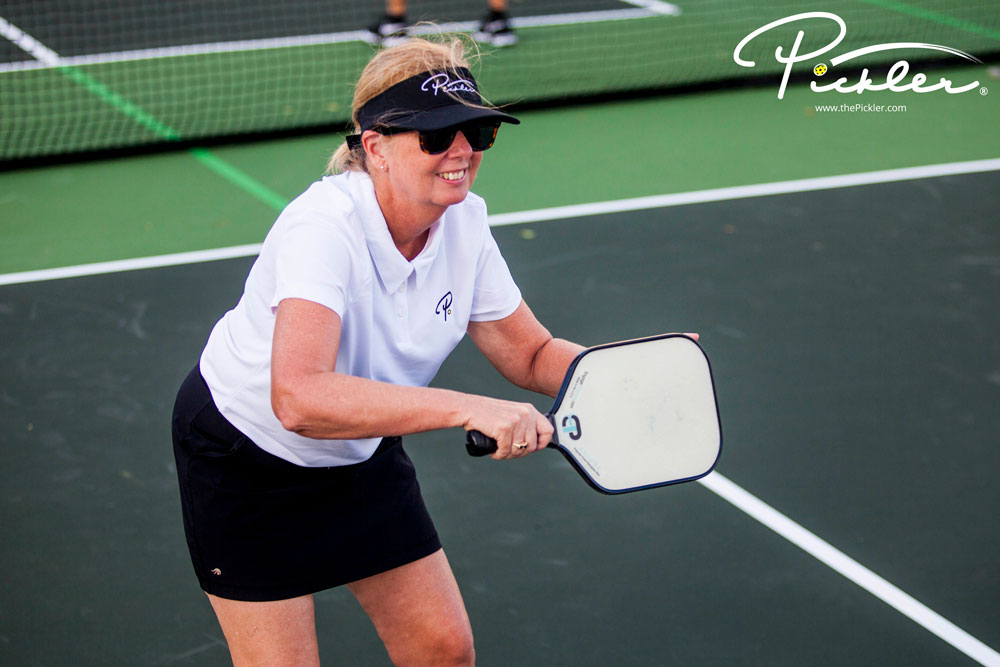
USA Pickleball Tournament Player Ratings
The USA Pickleball Tournament Player Rating (also referred to as the UTPR, and formerly known as USAPA Pickleball Tournament Player Rating) is a rating system developed by USA Pickleball to help determine what a pickleball player’s skill level is. The primary purpose of the UTPR is to prevent pickleball players from “sandbagging” – in other words, playing down in skill level in order to win a medal.
The UTPR is thought to be more accurate than a self-rating for pickleball players. However, it is only available for tournament pickleball players, so many recreational pickleball players may not have a UTPR and may only have a self-rating.
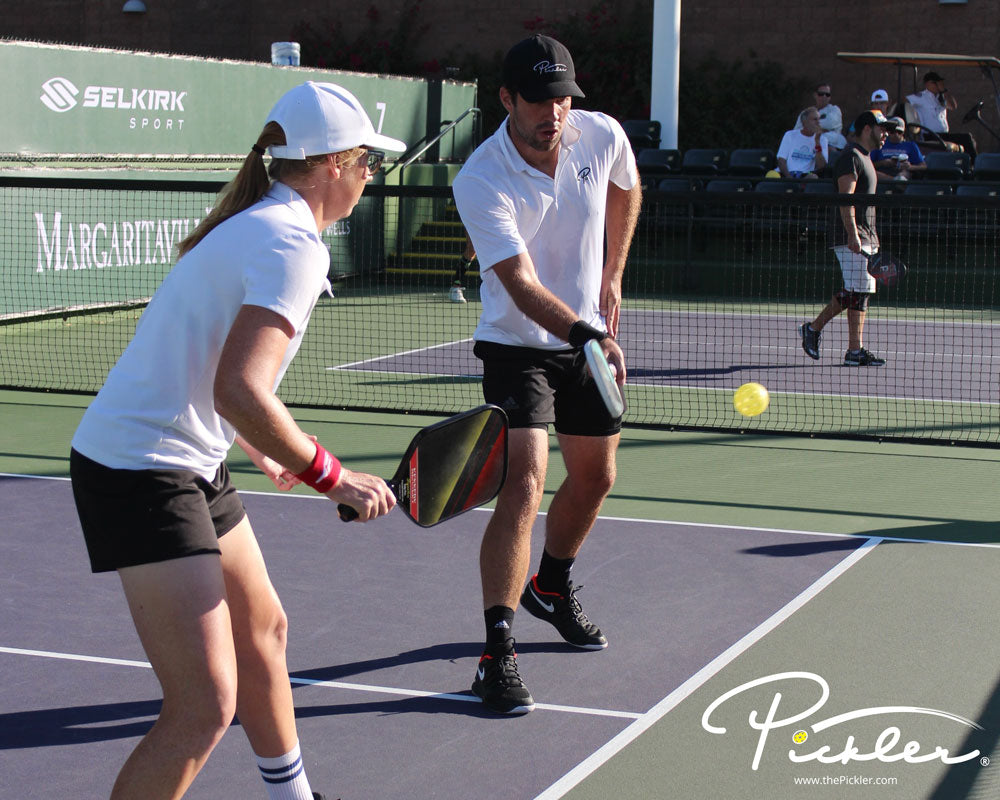
How Is the USA Pickleball Tournament Player Rating Calculated?
The UTPR is based purely on performance in pickleball tournaments and is only available for USA Pickleball members. In other words, you must play in pickleball tournaments, and be a member of USA Pickleball, to have a UTPR. Also, to note, the UTPR does not take age into account, so the UTPR may have some age bias.
The UTPR ranges from 0.000 to 6.999. The UTPR is either two digits or four digits. A four-digit UTPR is available for view by the applicable pickleball player it relates to and is used for purposes of seeding for pickleball tournaments. The two-digit UTPR is based on the applicable four-digit UTPR and may be viewed by the general public. The two-digit UTPR is rounded down from the four-digit UTPR – for instance, if you have a four-digit UTPR of 5.213, then your two-digit UTPR will be 5.0. Also, to note, you will have a different rating for each of singles, mixed doubles, and gender doubles.
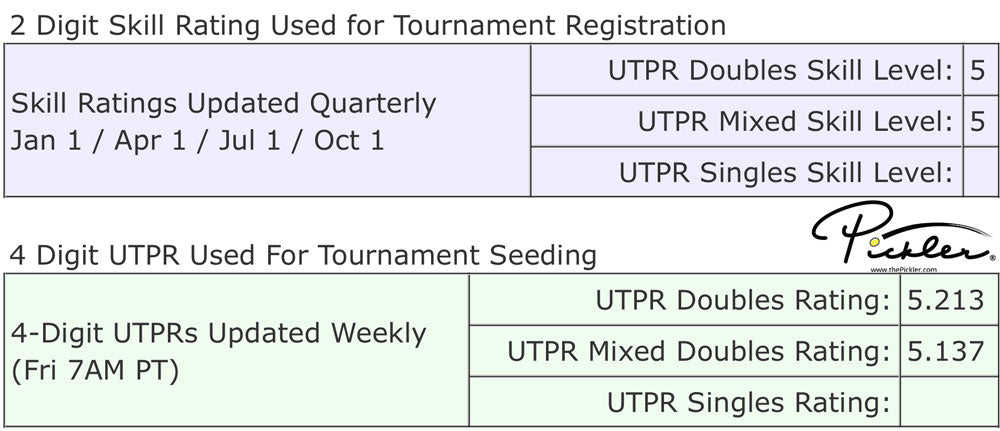
The UTPR is calculated weekly and is based on the ELO system, which means that your rating will increase for wins and decrease for losses. The extent of the increase or decrease to a rating depends on the following:
- Your rating
- Your partner’s rating (if you are playing doubles)
- Your opponents’ ratings
- The type of tournament that you are playing in
- Historically, pickleball tournaments were placed into three categories for purposes of weighting for the UTPR:
- USA Pickleball sanctioned tournaments had a weighting of 100%.
- USA Pickleball medal match plus (MMP) sanctioned tournaments (in other words, where referees only officiate medal matches (plus the match before the bronze medal)) had a weighting of 80%.
- Unsanctioned tournaments had a weighting of 60%.
- However, starting April 1, 2021, pickleball tournaments will either received (a) 100% weighting, or (b) 0% weighting and not be used in the calculation of the UTPR at all. USA Pickleball sanctioned tournaments (whether standard sanctioning or MMP sanctioning) will receive 100% weighting. All unsanctioned tournaments will not be weighted (in other words, 0% weighting).
- Whether you win or lose a match (to note, the score of the match does not matter – the same change to your rating will result whether you win 11-0, 11-0 or 11-9, 9-11, 12-10)
It is important to note that, in no event will any one match affect your UTPR by more than 0.1. Also, your UTPR will get more accurate with the more pickleball tournaments that you play.
To note, USA Pickleball has started a committee to evaluate how to improve the formula to better capture and reflect a player’s skill level. So, more to come on this!
Detailed UTPR Formula
For the detailed formula of the UTPR, follow the following steps:
- Average your UTPR with your partner’s UTPR to determine you and your partner’s rating prior to the match. If you are playing singles pickleball (rather than doubles pickleball), then you can skip this step, as you will only use your UTPR.
Your Average = (Your UTPR + Your Partner’s UTPR) / 2
- Average your opponents’ UTPRs to determine your opponents’ rating prior to the match. If you are playing singles pickleball (rather than doubles pickleball), then you can skip this step, as you will only use your one opponent’s UTPR.
Opponents’ Average = (Opponent 1 UTPR + Opponent 2 UTPR) / 2
- Determine the probability that the winning team would win using the following formula:
1 / (1 + 20 ^ (3(Losing Team’s Average Rating – Winning Team’s Average Rating)))
- Determine the amount of change for each team’s UTPR using the following formula:
(1 – Probability from Step 3)0.1
- Weight the amount of change based on the type of pickleball tournament – in other words, only incorporate the change and move to Step 6 if the pickleball tournament was a USA Pickleball sanctioned tournament:
Amount of Change from Step 4 * Applicable Weight (0%/100%)
- Determine each player’s new UTPR:
For the winning team, add the Weighted Amount of Change from Step 5 to each winning pickleball player’s UTPR.
For the losing team, subtract the Weighted Amount of Change from Step 5 from each losing pickleball player’s UTPR.
How the UTPR Is Used for Pickleball Tournaments
If you are playing in a pickleball tournament, you may always play up in pickleball skill level. This means that, if you have a UTPR of 4.5, then you could choose to play up in a 5.0 skill level bracket.
You may also play down in age in a pickleball tournament. For instance, if you are 52 years old, then you could choose to play down in the 19+ age bracket. The only exception to this general rule is that pickleball players younger than 19 may generally play in the 19+ brackets.
However, you may not play down in skill level or up in age. For instance, if you have a UTPR of 4.5, then you may not play in a 4.0 skill level bracket, and if you are 52, then you may not play up in the 65+ age bracket.
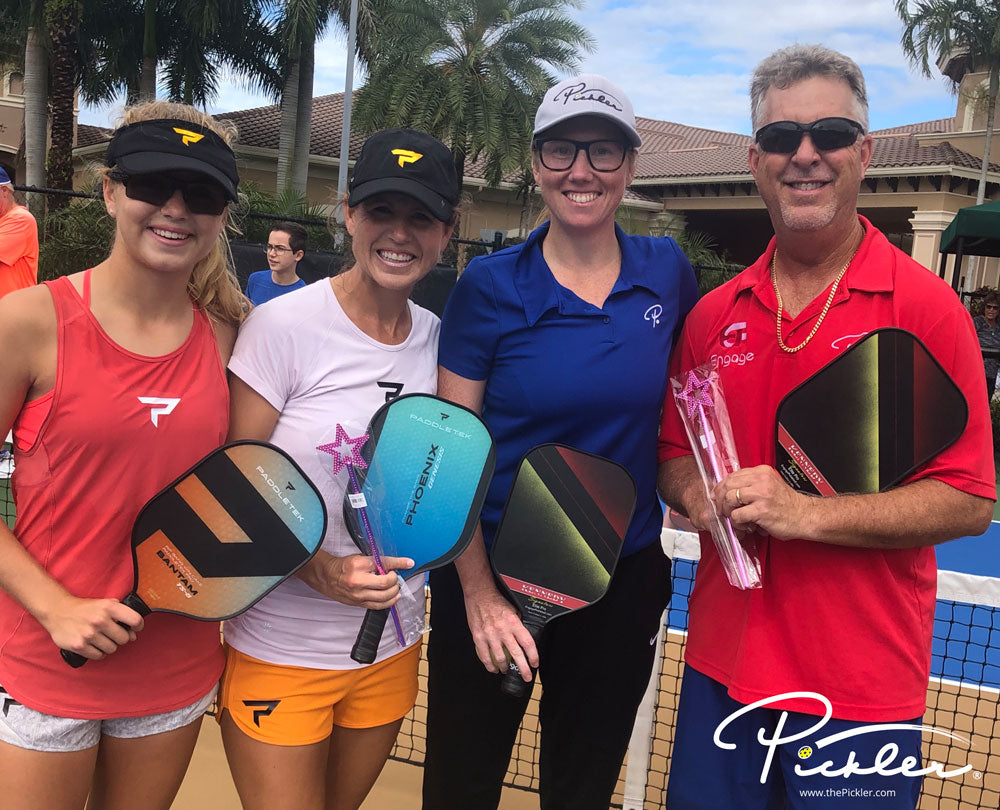
Also, as noted above, UTPRs are used for seeding in each applicable pickleball tournament bracket.
Dynamic Universal Pickleball Ratings
The third rating system is relatively new and much less common than self-ratings or the UTPRs. This new system is called Dynamic Universal Pickleball Ratings, or more commonly known as DUPR (which is the official rating system of the Professional Pickleball Association (PPA)). DUPR differs from the UTPR in a number of respects. First, DUPR incorporates all matches, including recreational play (as opposed to the UTPR, which only includes tournament play). Second, DUPR weighs how many points were scored in each match, so every point counts (even in recreational play). Third, DUPR gives a higher weighting to the weaker partner’s skill level in doubles pickleball, which is based on the principle that the weaker player will receive more balls or shots. Lastly, DUPR only has one rating, as opposed to the UTPR, which has both a mixed rating and a gender doubles rating.
General Pickleball Skill Levels
Although the self-rating and USA Pickleball Tournament Player Rating are more detailed and exact, some recreational pickleball clubs and leagues may use more general pickleball skill levels. For instance, some pickleball clubs and leagues may break pickleball players into:
- Beginner Pickleball Players – Beginner pickleball players would generally include pickleball players with a rating of 3.0 and below. In other words, these pickleball players have a very basic understanding of the rules and strategy of pickleball and have some basic shots (such as a serve, return, medium paced drive, and dinks), but have limited consistency and control.
- Intermediate Pickleball Players – Intermediate pickleball players would generally include pickleball players with a rating of 3.5 to 4.0. In other words, these pickleball players have a good understanding of the rules and strategy of pickleball and have both forehand and backhand shots (including drop shots, backhand shots, and volleys), which are generally consistent with a moderate number of unforced errors.
- Advanced Pickleball Players – Advanced pickleball players would generally include pickleball players with a rating of 4.5 and above. In other words, these pickleball players have a strong understanding of the rules and strategy of pickleball and have great command over all shots on the pickleball court, with a limited number of unforced errors.
Some pickleball clubs and leagues use these broader groupings of skill level in order to facilitate the social component of the sport of pickleball. In other words, broader groups allow for more socializing! These general pickleball skill level groupings are also great for allowing lower-level pickleball players an opportunity to improve their skill level by playing with and against higher-level pickleball players.
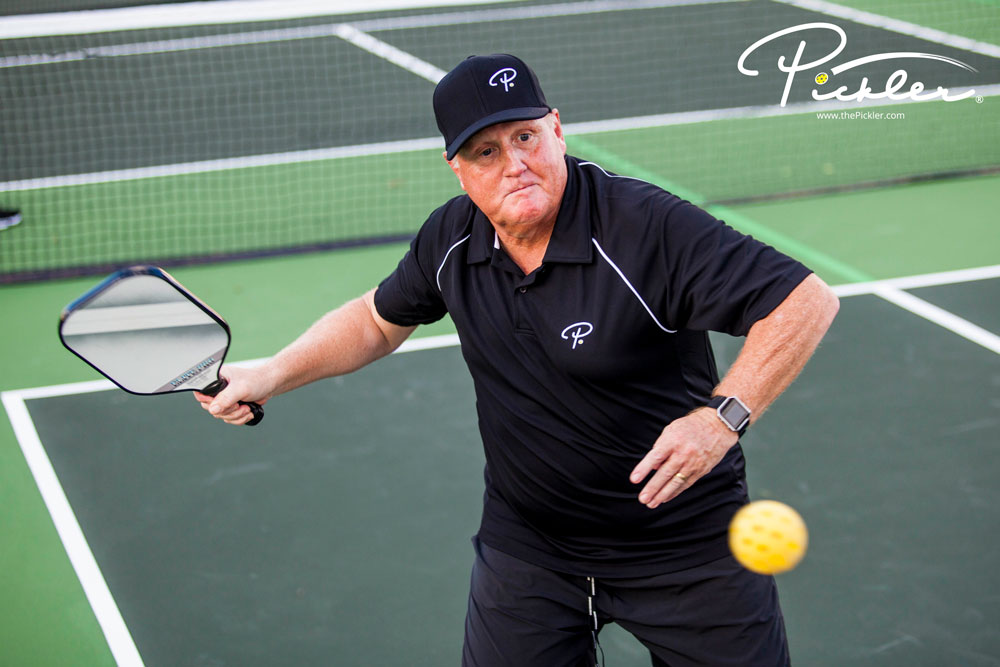
Pickleball Rankings
When it comes to pickleball rankings, there are a few organizations jockeying for the premiere pickleball ranking system. These include the following:
- World Pickleball Rankings (powered by Pickleball Tournaments)
- Global Pickleball Rankings
- APP Rankings
- PPA Rankings
- USA Pickleball Rankings (maybe at some point “very soon”?)
World Pickleball Rankings
The World Pickleball Rankings were launched in 2021 by Pickleball Tournaments (www.pickleballtournaments.com). The World Pickleball Rankings claim that it is the “gold standard” for pickleball rankings for professional pickleball players. The World Pickleball Rankings ranks pickleball players based on their respective performance at each of the major pickleball tournaments across the country, which include the USA Pickleball National Championships, US Open Pickleball Championships, Tournament of Champions, and the various events on each of the PPA and APP tours (which are the two major tours in the sport of pickleball).
Global Pickleball Rankings
The Global Pickleball Rankings are provided by Pickleball Global. The Global Pickleball Rankings are based on a pickleball player’s 12 best events in the previous 12-month period. The Global Pickleball Rankings are unique as they are age based and are based on points only for matches won (meaning that pickleball players are not penalized for poor match results).
APP Rankings
The Association of Pickleball Professionals (APP) is a pickleball tournament tour for both professional and amateur pickleball players. The APP ranks both professional and amateur pickleball players based on their respective performance solely in APP Tour events. The APP Tour’s rankings are called the APP Standings List.
PPA Rankings
The Pro Pickleball Association (PPA) is a pickleball tournament tour for both professional and amateur pickleball players, but focuses on the professional pickleball players. The PPA ranks the professional pickleball players based on their respective performance solely in PPA Tour events. The PPA Tour’s rankings are called the PPA Player Rankings.
USA Pickleball Rankings
USA Pickleball does not have pickleball rankings, as the UTPR is not intended to be a ranking of pickleball players. However, USA Pickleball has publicly noted that pickleball rankings “will be available very soon.”

Do You Know What Your Pickleball Rating, Skill Level, or Ranking Is?
If you are a tournament pickleball player, then you probably closely follow your rating (including your UTPR), skill level, and ranking, and you probably have a goal of improving as much as possible. However, if you are a recreational pickleball player, then you may only have an idea of your self-rating or your general pickleball skill level.
For recreational players, it may be a good idea to at least know your rating or skill level so that you can play in pickleball games in and around your skill level, as games with equal competition are usually some of the most fun. With that said, it is still fun to mix it up and play with friends of different skill levels.
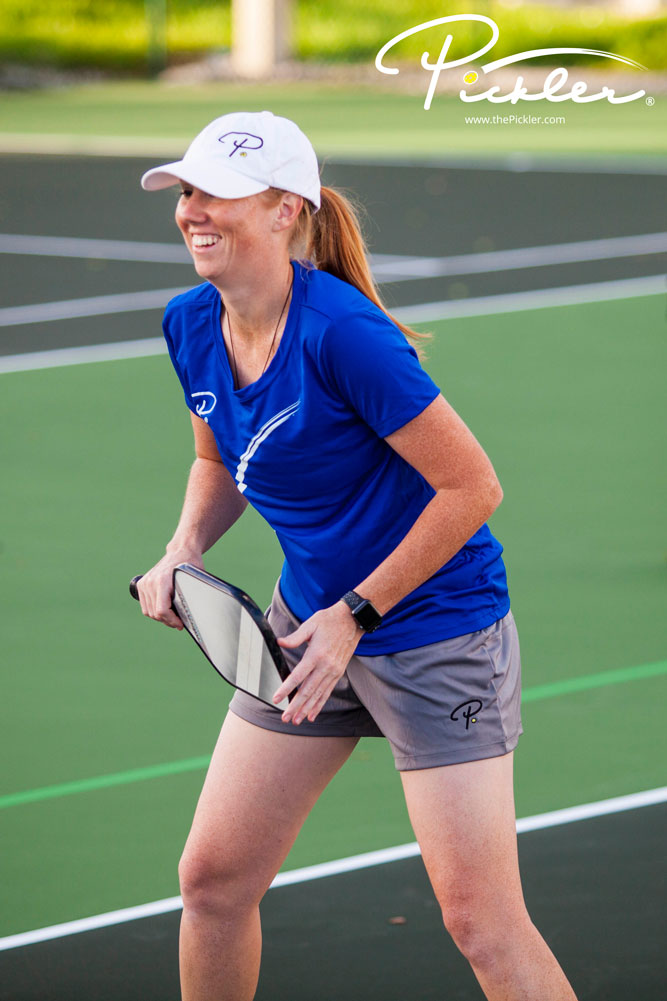
Do You Want to Improve Your Pickleball Rating, Skill Level, or Ranking?
If you want to improve your pickleball rating, skill level, and/or ranking, check out Pickler’s online video lesson collection called My Pro Pickleball Coach. From my own personal experience, the lessons taught through these online videos helped me go from a 3.0 pickleball player to a 5.0+ pickleball player! Plus, My Pro Pickleball Coach (which has over 140 video lessons) is a fraction of the price of one clinic or even one lesson, and is available on demand 24/7. Learn every aspect of the sport of pickleball, including pickleball drills, strategy, and advanced concepts, to improve your pickleball rating, skill level, and ranking today!

Updated as of October 30, 2021

